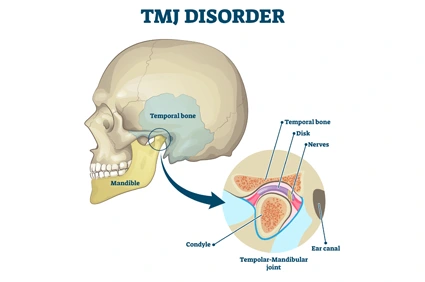Research has always looked at these two conditions as completely separate. However, current research indicates that there might be a cyclical connection between the two.
Some research indicates that the lack of sleep associated with sleep apnea could lead to bruxism, which could lead to OSA- and so on. Quality Sleep Solutions has five locations across South Carolina. We can help diagnose and treat your sleep issues. We offer an alternative to traditional CPAP therapy for sleep apnea.
This cessation in your breathing startles you, causing you to wake up just enough that you start breathing again. While the startle reflex keeps you alive, it also interrupts your sleep, so that you don’t get restful sleep.


While you can’t necessarily control the above factors, there are some habits that can worsen this condition, including:
The primary symptoms include pain, sounds like clicking/popping when moving the jaw, and restricted movement.
Diagnosis starts with a comprehensive dental exam, which includes imaging. Some of the most common imaging used in diagnosing TMJ disorder are dental x-rays, CT scans, MRIs, and TMJ arthroscopy.
Recent studies have found that there is a connection between obstructive sleep apnea, or OSA, and TMD. There are certain factors that could impact the connection between the two.
For example, it appears that many patients with OSA often have more motor activity in their upper airway because their body is trying to keep the airway open by pushing the lower jaw forward. This results in bruxism, which ultimately puts a strain on the joint, the articular disc, and the muscles/tissues around it. This can lead to inflammation and TMJ disorders.
On the other hand, sometimes the two have the same underlying cause. For example, malocclusions, or teeth misalignments, can cause airway blockages while sleeping. In addition, this prevents the jaw muscles from resting in a comfortable position, which puts pressure on the joint.

The most common treatment for sleep apnea is CPAP.
Typically, treatment starts with the most conservative, least invasive options. Surgery is usually only considered as the last option.
Many times, CPAP is recommended for treating sleep apnea. However, this may not always be the best option and, in many cases, can be inconvenient.
The best treatment depends on the cause of your sleep apnea and TMJ. The professionals at Quality Sleep Solutions in South Carolina can help diagnose and treat your conditions to improve your sleep. Schedule your consultation with one of our 5 convenient locations across South Carolina. We offer a more comfortable, convenient alternative to CPAP therapy.
Get Answers